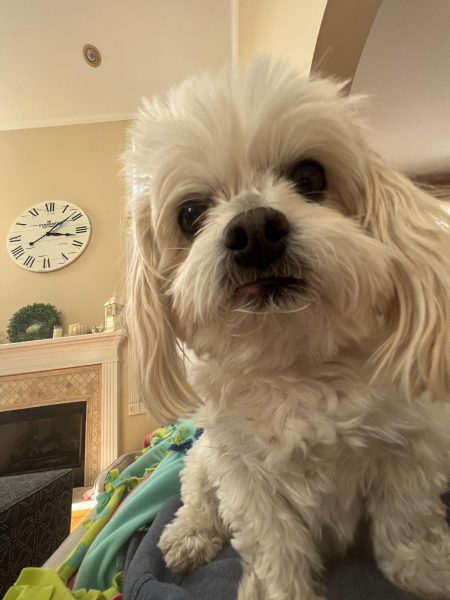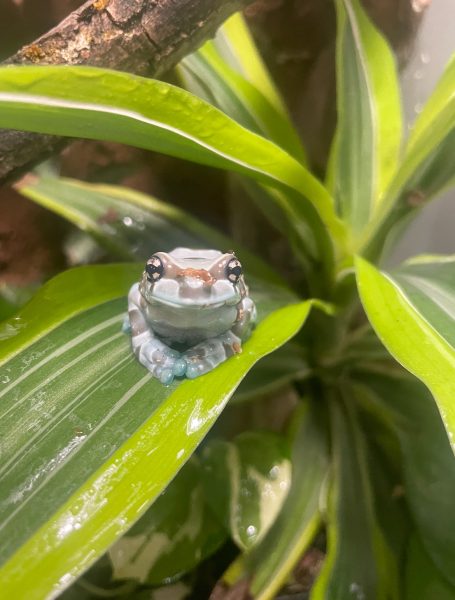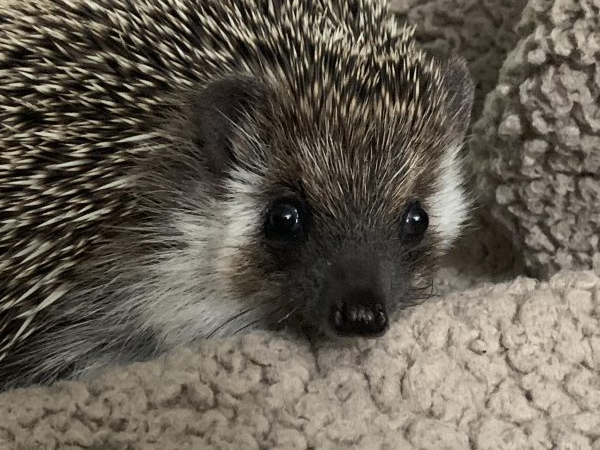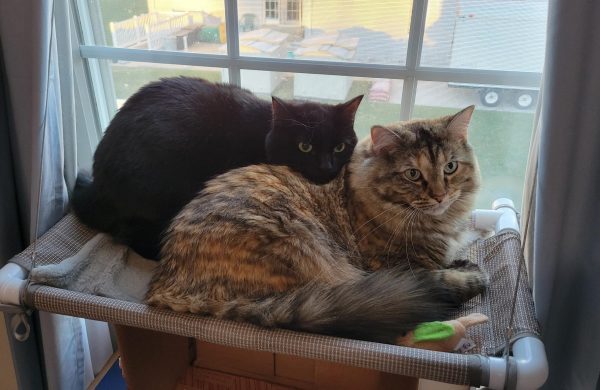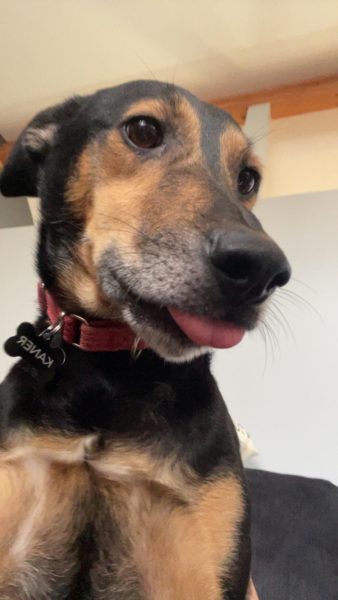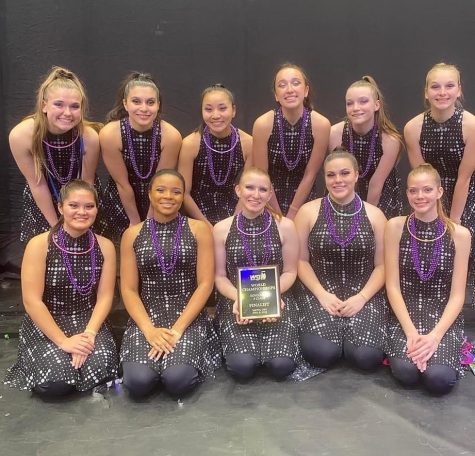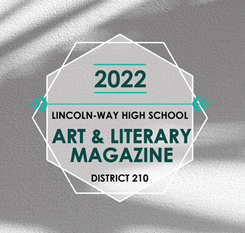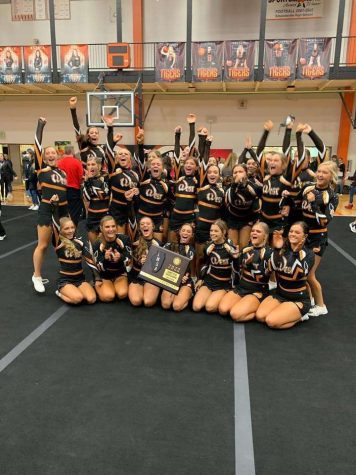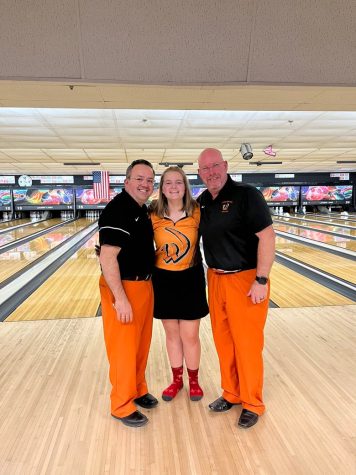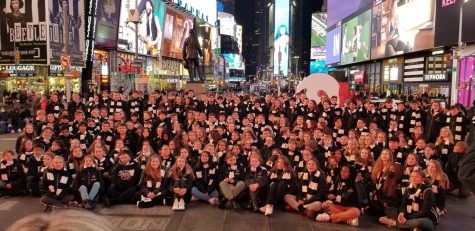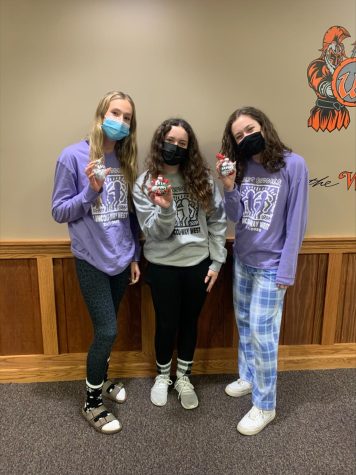My AP Spanish Journey
“You’re in Spanish ‘What’?!”
October 16, 2019
As the new school year starts, there are several conversation starters that people use to connect with their fellow peers. A few examples for ice breakers would be, “How was your summer?” or “Do anything cool over break?” and most likely, “What’s your schedule this year?” This last question would be the catalyst for conversations held between anyone because it can be the beginning to new friendships or a continuation of old ones. It’s where you can bring up the daily talk on a shared English teacher, the homework for the same science course, or a presentation in a history class.
If anyone asked about my schedule, it would take me half a second to recall most of my general classes on the spot, “AP Statistics, College Writing, Anatomy and Physiology, and PE.” The person or group would usually reply with a “cool” or “nice” and maybe ask what teacher I had in a shared class. My mind would suddenly pause, “Oh, right. And Spanish.” A normal conversation would usually flow like this, “I’m actually taking Spanish, too! Right now, I’m in Spanish 3. You?” “Five,” I’d say. “Five, what?” “I’m in Spanish Five.” Some reactions would be an incredulous look, a “Why”, or “There’s a Five?!”
Yes. There is, actually. So, to explain my case on why I’m not insane, here are some questions and answers as to why I chose my AP Language Journey:
- Why did you choose to continue your language study at a higher level?
My goal was to broaden my vocabulary and study advanced sentence structures to attain a higher level of progressing fluency in a more formal setting, rather than sticking to the limited understanding of Spanish slang used at home and family gatherings. It also distinguishes you from others when applying for college or job.
- What made you choose to study the language that you did?
Before the start of this journey, I knew I was struggling to communicate and understand anyone who spoke to me in Spanish from replying to letters sent by distant relatives in other states, to speaking with my grandma on the phone from Honduras, and even buying groceries in a Latino market. Throughout all of this, I would constantly ask my parents to translate, and I was tired of it. I decided to commence my Spanish education freshman year, where I began in Spanish 2, learning grammar tenses and unit vocab that I utilize daily.
- How do you use your understanding of another language?
I make it a daily objective of mine to use my Spanish outside the classroom to get a better understanding of the accents of native speakers and their fast-paced conversation. Usually, my mom is the one that’s fallen victim to my fledgling language skills. Other times, if I run into her co-workers, or while job shadowing, or volunteering somewhere, I dig-out the Spanish I can scrape from the recesses of my mind. At first, I would be nervous to even say “Hola,” but then after an exchange of friendly smiles, it would push me to test out what I know.
- What is the seal of biliteracy? Will you try to pursue that?
The seal of biliteracy is an award that recognizes a student that has pursued and achieved a high level of proficiency in two or more languages. You can receive this award through the annual STAMP exam. An alternative would be taking an AP Spanish exam where you would need to score a four or higher. My first attempt at receiving this award was Sophomore year but I was short by a couple categories and received the second highest to the Seal which is Commendation. I then took the STAMP exam again junior year and finally was able to achieve it!
So, in summary, I would completely recommend taking a Spanish course because of the benefits that come along with knowing more than one language. It helps when you apply for a job, when someone needs assistance with translating in a conversation, especially when you continue to study the language because it sets you apart from others and shows your persistence in absorbing new things about what you’re learning.
¡Gracias por su atención y espero que tengan un buen día!
Or in other words, thank you for your attention, and I hope you have a good day!

